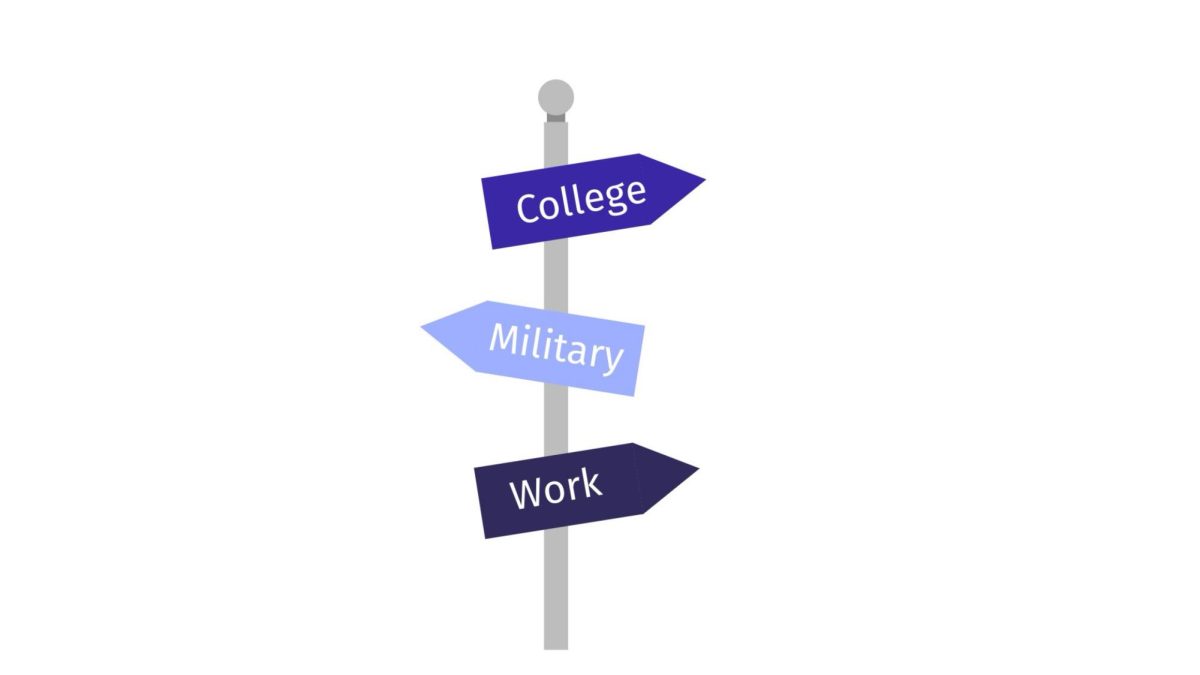Opinion: It’s 2019, and Marriage is…not Outdated

November 10, 2019
It’s 2019 and a popular question is circling: Is marriage outdated?
“What’s wrong with having five or six loving adult relationships through your life?” HuffPost asked in an article questioning the relevance of marriage in our society today. Other popular sources, especially newly trending Snapchat news stories are quickly spreading the news: marriage is out and anything else is in.
“I think marriage is outdated,” senior Isis Tapia said. “I personally don’t think you need a significant other to thrive.”
Senior Jacqueline Armenta agreed. “You can still be together even if your not married because marriage now is literally just a signed paper,” she said.
Both girls agreed that part of the reason marriage is irrelevant comes from the gender roles of older generations. It’s possible the past extremes marriage came with are part of the reason our society is now leaning away from it. The extreme that a woman’s worth depends solely on if she has a husband or not, is now countered with the extreme that marriage is altogether unnecessary.
But before marriage is thrown into the same box as road maps and cassette tapes, there are several reasons society should consider when deciding which way we want our culture to go with the issue. If we value strong families, the emotional, physical, and social well being of children, practiced commitment, and long term relationships, healthy marriages should remain a big part of our culture.
One of the most vital reasons is what a committed, two-person marriage does for children, in comparison to other arrangements.
“The advantages of marriage for children’s wellbeing are likely to be hard to replicate through policy interventions other than those that bolster marriage itself,” said a study done by Princeton University. “Marriage between two parents, compared with other family living arrangements, appears, on average, to enhance children’s wellbeing and development.”
Not all parents get to choose their circumstances, and that’s OK. Good things can and have many times come out of difficult situations. But my fear is that our culture is going in a direction that no longer regards broken families as problems, but rather encourages broken families.
“According to Dr Georgiana Tang…women choosing to be a single mother is on the increase, and as well as the widespread acceptance of this,” said Karina Lane in an article called “Single and wanting a baby?” Here are your options.”
She went on to say women are “no longer chained to the notion that babies require marriage,” and that “independent women these days are making their own decisions when it comes to having babies.”
But it’s less about whether or not a woman needs a man in her life and more about the fact that a child benefits greatly from both a male and female figure in their life.
A child without a father, for example, is more likely to face abuse and neglect, drop out of high school, commit crime, and end up in prison. 85% of prison youths are from fatherless homes. 90% of homeless children and runaways come from fatherless homes, as do 71% of pregnant teenagers. 63% of youth suicides are from fatherless homes.
But the damage doesn’t just end at fatherless homes, it comes from motherless homes, divorce homes, split homes, and homes where marriages and families are pulled apart. Divorce affects children. Even divorce that is necessary. This is especially true, according to “Motherless and Fatherless homes”, when one parent gets sole custody. Why? Because children benefit emotionally and socially from knowing and seeing both their parents.
Cohabiting relationships as well, are becoming more and more popular. Why get married when you can live together without all that pressure from commitment? But family stability decreasing can be directly related to more couples having kids in cohabiting relationships versus married ones. Don’t miss that first part, family stability is decreasing.
In a report titled “Relationship Quality among Cohabiting versus Married Couples,” a nationally represented study, stated the following.
“We found that the relationship between union type and relationship quality is now bifurcated with direct married reporting the highest relationship quality and cohabitors without marriage plans reporting the lowest marital quality.”
This meaning that cohabitors without plans to marry reported the lowest quality relationships. I talked to several teachers from West to discover why they think that is, and overall how they feel about cohabiting relationships versus married ones.
Praveen Vadapally, a chemistry teacher, as well as a psychology and chemistry major is a supporter of the marriage system. He has been with his wife from an arranged marriage for 23 years now. He’s adamant that the marriage system is built on trust, commitment and love, and offers great perspective on what marriage is about. If you’ve ever been in his class or heard him tell stories about his relationship, it’s clear how much he values his wife, considering he calls her Fructose, the sweetest form of sugar.
“[In a marriage] There will be more accountability and more reason for trying to fix the problems,” Vadapally said. “Whereas in the living-together relationship, we may be committed, we may be loving each other, but when it comes down to problems in the relationship we may be tempted to give up easily because no families are involved here. No official commitment is involved here. So there’s a temptation as a human being to find an easy way out rather than fighting these problems.”
Coincidentally, it’s from Vadapally that I learned in chemistry, sigma bonds are stronger than pi bonds, meaning one-on-one bonds are hard to break.
But to a generation with so many options, it can be hard to see the value or reason for going steady. And with so many marriages failing, it can seem one-on-one bonds really aren’t that hard to break.
But staying together is possible. And long-term commitment is extremely beneficial and healthy. It’s a choice that, despite popular belief, doesn’t have to end in misery, but rather could end in joy and fulfillment. It benefits society with families who are connected and benefits children with stable homes. It benefits individuals by giving them a partner; a partner that vowed, in front of friends and relatives, to never leave their side. And when followed through, it can be beautiful.
Phylis Clark, Algebra II and Honors Algebra II teacher at West got married at the young age of 22, and says she’s very happy she did so. Families and children aside, she offered insight on how the benefits of a healthy marriage are relevant to her life.
“It’s who at the end of the day do you want to come home to,” Clark said. “There’s so much comfort in between me and my husband that if I go home and tell him I had a terrible day he’s going to go, ‘Oh I’m so sorry, that sucks. Let’s do this and that will make you have a better day.’ I’d rather have that than super fun love where you’re out and running around and doing all this fun stuff. I’d rather have someone to come home and be comforted by at the end of the day.”
As far as science goes, we have yet to definitively pronounce on whether humans are naturally monogamous or polygamous. But we’re not absolutely, without a doubt, hardwired for polygamy. If humans were naturally polygamous, which most believe is likely, that still would not demolish the defense for marriage, or prove it’s unimportance. In other words, the easy thing is not always the best thing. If proof did exist that polygamy comes easier to humans than monogamy, this shouldn’t be enough to convince one that polygamy is the route to take.
Take the people who believe men are hardwired to cheat on their partners for example. “Boys will be boys,” they say. And science even offers some biological factors in men that may explain this likeliness to cheat. But even if these factors do exist, they cannot convince society that cheating is moral, beneficial, or harmless. Because it has proven to be otherwise. And likewise if you are a scientific person, I hope you take into consideration that if marriage were the harder thing for humans to take on, that wouldn’t make it any less beneficial or less worth doing.







